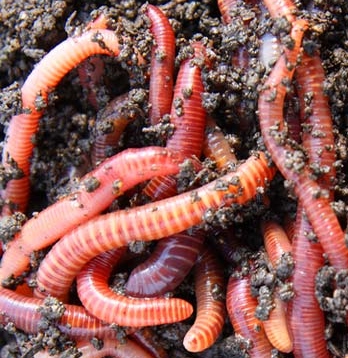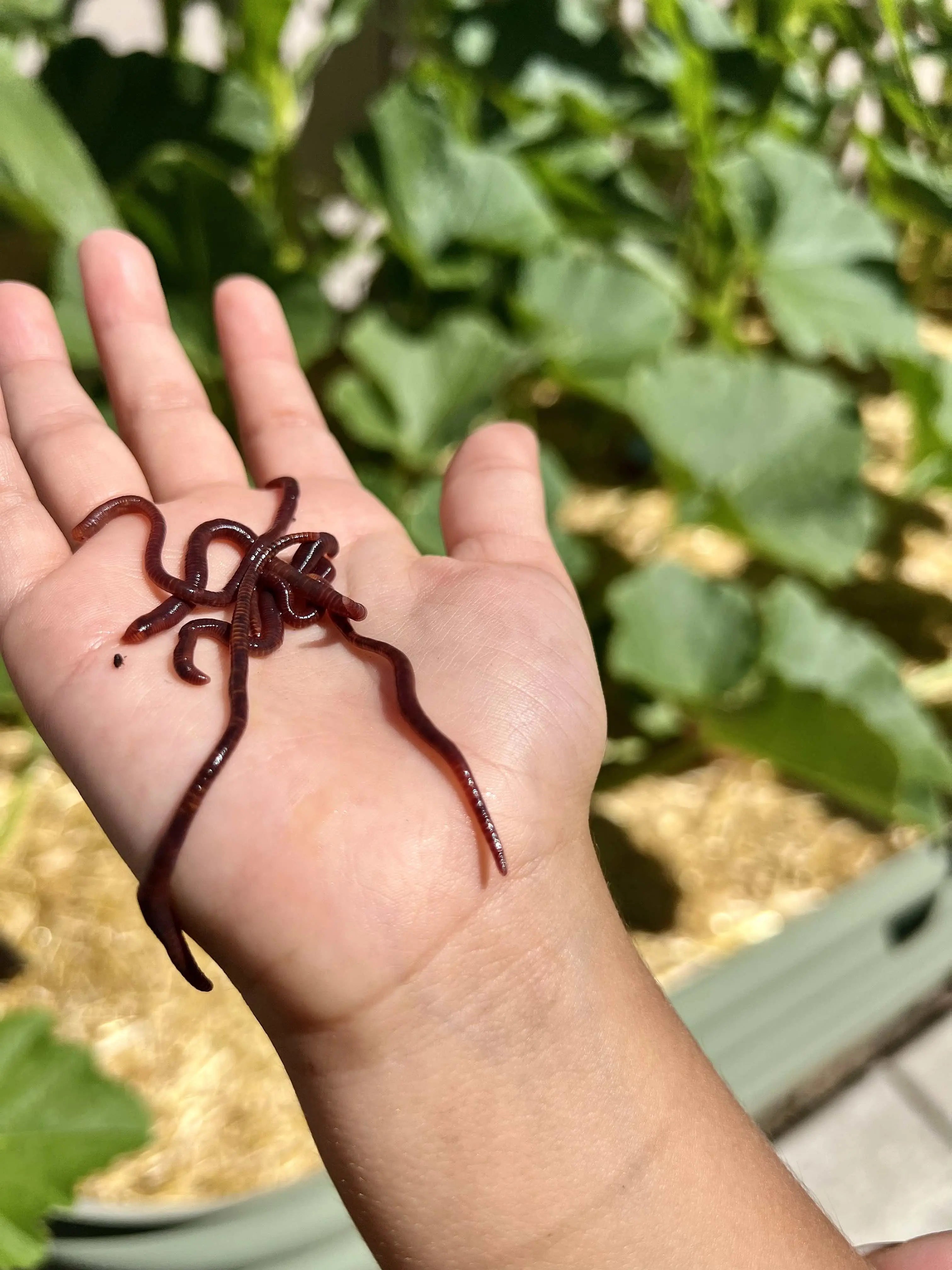Get Red Wiggler Worms Online - Convenient and Rapid Shipping
Get Red Wiggler Worms Online - Convenient and Rapid Shipping
Blog Article
Red Wiggler Worms Demystified: Unlocking the Secrets of Vermiculture for Greener Living and Nutrient-Rich Soil
In the world of lasting practices for improving dirt high quality and advertising eco-conscious living, red wiggler worms play a pivotal yet commonly forgotten role. These humble creatures have the impressive ability to transform natural waste right into nutrient-rich castings that act as a powerful natural fertilizer. By diving right into the globe of vermiculture, one can uncover a variety of advantages that extend far past typical composting methods. Comprehending the details of looking after these worms, optimizing their atmosphere, and harnessing their castings can bring about a greener lifestyle and healthier dirt for plants to grow.
The Function of Red Wiggler Worms
Red Wiggler worms play an important role in composting systems by successfully damaging down organic matter right into nutrient-rich spreadings. These starved eaters eat a selection of natural products, such as kitchen area scraps, lawn waste, and paper items. As they feed, the worms' digestive system processes break down the raw material into a penalty, dark, and nutrient-dense material understood as worm castings or vermicompost.
The spreadings generated by Red Wiggler worms are highly useful for dirt health and wellness and plant growth. They are abundant in vital nutrients like potassium, phosphorus, and nitrogen, which are essential for supporting healthy and balanced plant development. In addition, worm castings include useful microorganisms and enzymes that aid improve dirt framework, increase water retention, and boost nutrient uptake by plants.
Benefits of Vermicomposting

Additionally, vermicompost, the nutrient-rich end product of vermicomposting, acts as an excellent organic plant food and soil conditioner. It improves soil framework, enhances soil aeration, and increases dirt dampness retention. These properties contribute to healthier plants with more powerful origin systems and much better resistance to diseases and bugs. Vermicompost also enriches the dirt with essential nutrients like nitrogen, potassium, and phosphorus, advertising plant growth and overall soil fertility.
Additionally, vermicomposting supports sustainable horticulture methods by supplying a all-natural and chemical-free choice to synthetic fertilizers. Red Wiggler Worms. This ecologically friendly technique not only improves the dirt yet likewise helps in reducing reliance on hazardous chemicals, promoting a greener and much more lasting method of horticulture
Setting Up a Worm Container
When developing a worm container for vermicomposting, appropriate configuration is critical to make sure the success of the composting procedure. The very first step in setting up a worm bin is selecting an ideal container.
After including the bed linen, introduce the red wiggler worms to the bin. It is advised to begin with a handful of worms and slowly increase as they increase. The worms must then be offered with food scraps such as fruit and veggie peels, coffee premises, and eggshells. It is necessary to prevent adding meat, milk, oily, or salty foods to prevent bring in bugs and creating undesirable odors.
On a regular basis monitor the moisture degrees and temperature level in the worm bin to make sure optimal problems for the worms. With proper configuration and maintenance, the worm bin will effectively transform organic waste into nutrient-rich garden compost for your plants and yard.
Harvesting Worm Spreadings
To efficiently gather nutrient-rich worm spreadings from your vermicomposting system, a methodical harvesting approach is vital. There are a few vital steps to follow to make sure an effective process when it comes time to gather the worm spreadings. Stop adding fresh food scraps to one side of the worm container for a couple of weeks prior to gathering. This motivates the worms to move sideways with fresh bed linens and food, view it now making it simpler to scoop out the castings from the other side.

Troubleshooting Common Issues
Recognizing and attending to common difficulties that might occur throughout the vermicomposting process is crucial for preserving a healthy and balanced read review and efficient worm container. One common concern that vermicomposters encounter is overfeeding. Adding excess food scraps can bring about an accumulation of dampness and acidity in the worm container, potentially hurting the worms. To prevent this, feed the worms in moderation, ensuring that the food scraps are sufficiently damaged down before including much more. Another problem is undesirable odors emanating from the worm container. Foul smells indicate anaerobic conditions, commonly triggered by overwatering or insufficient air flow. To remedy this, change the wetness degrees by adding her explanation completely dry bedding products like shredded paper or cardboard and rise oygenation by turning the bedding routinely.
Furthermore, if the worm population is declining or the worms appear harmful, maybe due to ecological stress factors such as severe temperature levels or pH levels. Checking these aspects and making needed changes is essential for the wellness of the worms. By fixing these usual issues without delay, vermicomposters can ensure a smooth and successful vermicomposting process while maintaining a prospering worm population.

Final Thought
Finally, red wiggler worms play an important duty in vermiculture by damaging down raw material into nutrient-rich dirt. The advantages of vermiculture consist of greener living and improved soil high quality. Establishing a worm container is important for successful vermiculture, and gathering worm spreadings gives beneficial compost for horticulture. By recognizing and repairing common problems, people can open the keys of vermiculture for sustainable living and much healthier dirt.
As they feed, the worms' gastrointestinal processes break down the organic matter right into a fine, dark, and nutrient-dense material known as worm castings or vermicompost.
The castings produced by Red Wiggler worms are highly advantageous for soil health and wellness and plant development. Adding excess food scraps can lead to an accumulation of wetness and level of acidity in the worm container, possibly damaging the worms.In addition, if the worm population is declining or the worms show up undesirable, it could be due to environmental stress factors such as extreme temperatures or pH degrees. Establishing up a worm bin is necessary for successful vermiculture, and harvesting worm spreadings supplies important garden compost for horticulture.
Report this page